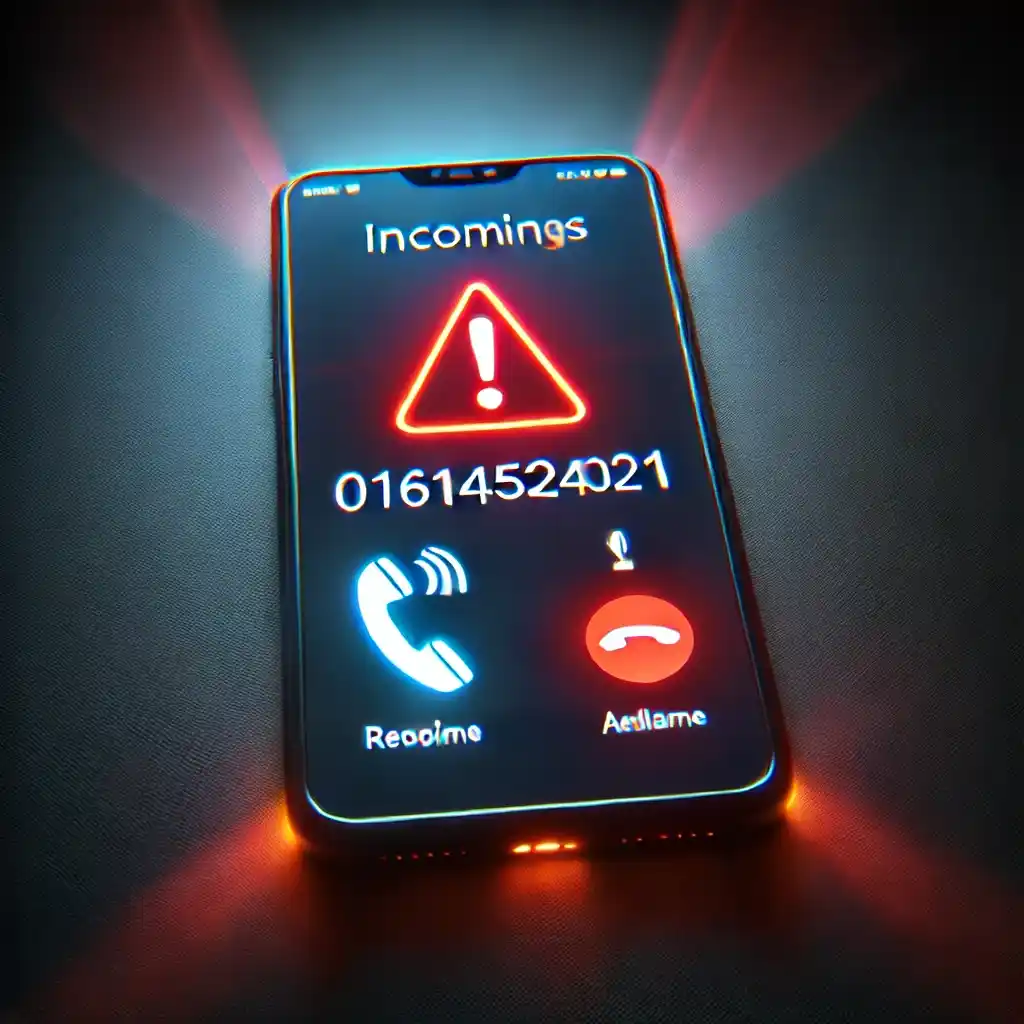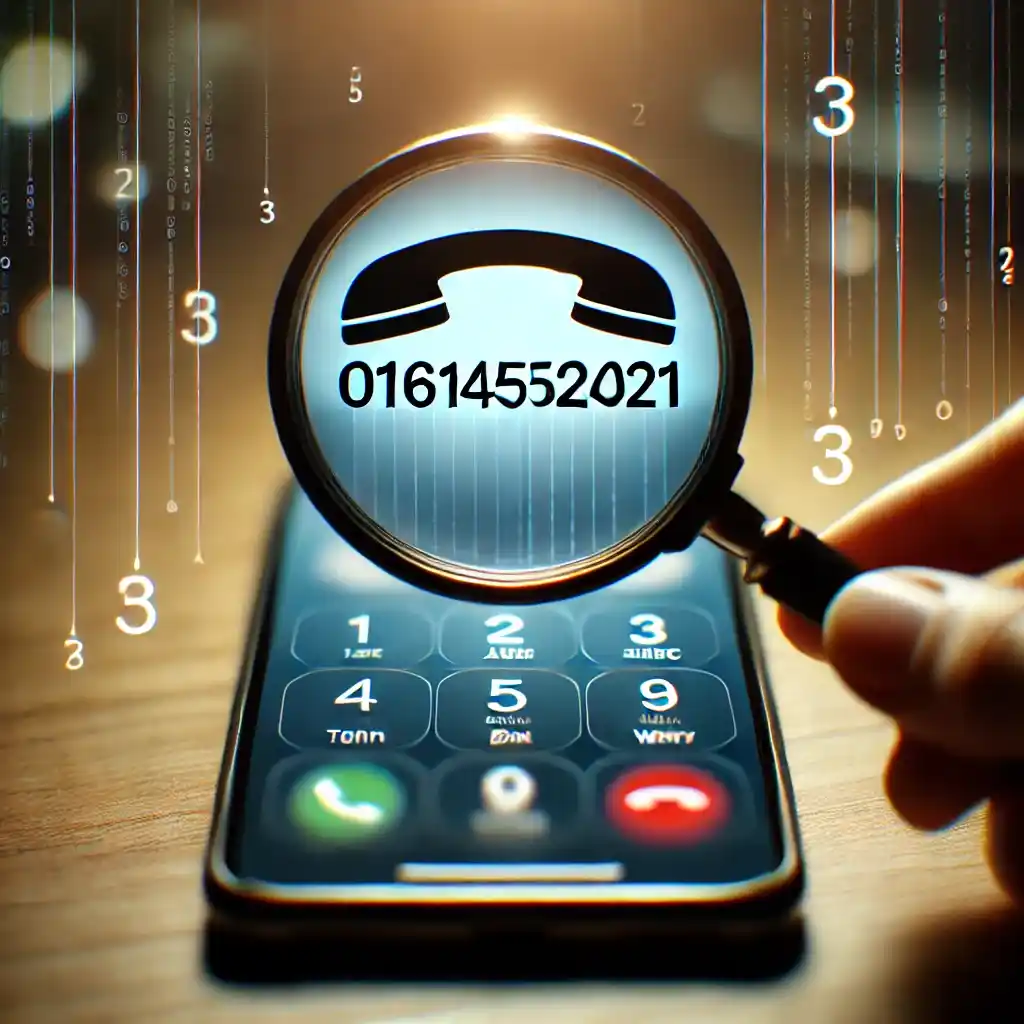One number that has recently attracted attention is 01614524021. With 17 reports and 3,829 lookups recorded by our community, this UK-based landline—associated with the Manchester area—has earned a “dangerous caller rating” from users, including ratings of Dangerous and Harassing. In this comprehensive article, we delve into the background of this number, examine user experiences, explore common scam tactics, and provide practical guidance on how to stay safe. In today’s digital age, phone scams and unsolicited calls have become a significant concern for consumers worldwide.
Background: The Rise of Scam Calls and Cold Calls
Fraudulent phone calls have surged over recent years. Scammers continually refine their techniques, making it increasingly challenging to distinguish between legitimate and fraudulent calls. The phone number 01614524021 has been reported for suspicious activities, notably for making cold calls that falsely claim to be associated with institutions like Barclays. Scammers typically use such associations to gain your trust, which can lead to divulging personal or financial information.
Common Scam Tactics
Scam callers use a variety of strategies to deceive recipients. Below is a table summarising several key tactics:
| Tactic | Description | Example |
|---|---|---|
| Impersonation | Fraudsters pose as representatives from reputable companies or banks to gain trust. | Claiming to be from the Barclays Security Team. |
| Urgency Creation | Scammers create a sense of immediate threat, urging you to act quickly without verification. | Warning that a review of recent payments is urgently needed. |
| Repetition | Multiple calls are made to wear down the recipient’s resistance and prompt a reaction. | Repeated calls over two weeks despite being on a block list. |
| Spoofing | Masking the caller’s real number by using a spoofed number to appear as a trusted source. | Displaying a local Manchester number while originating calls elsewhere. |
This table highlights how scammers blend tactics to confuse and exploit unsuspecting individuals.
Read this most trending blog post Who Called Me 08007613372.
Overview of the Reported Number: 01614524021
01614524021 is a landline associated with the Manchester area, drawing significant attention from our community. The number’s statistics are concerning:
| Aspect | Details |
|---|---|
| Phone Number | 01614524021 |
| Geographical Area | Manchester, UK |
| Total Reports | 17 |
| Total Lookups | 3,829 |
| Dangerous Caller Rating | Dangerous (2 votes); Harassing (1 vote) |
| Common Keywords | Scam, Company, Business, Security, Card, Voicemail, Investigation |
| Claimed Affiliation | Falsely claims association with Barclays |
| Nature of Call | Cold call with potential scam elements |
This table provides a quick overview of the key details that have led to the number being flagged as suspicious.
Community Feedback: User Experiences
User reports provide invaluable insights into how scam calls are perceived and experienced. Below is a table summarising key user experiences reported about 01614524021:
| User Comment | Reported Issue | Rating/Keyword |
|---|---|---|
| “I’ve received calls and it seams could be a scam for a bank.” | Suspicion of banking scam | Scam |
| “I was recently called by a scammer as I found out I didn’t realise all this was going on from landline numbers.” | Unexpected origin and suspicious activity | Scam |
| “Just had a call from 01614524021 – My phone flagged as spam so ignored it. Its been flagged as ‘takepayments’ – I have no idea who this is.” | Identification by spam detection | Spam/Scam |
| “This number has rang me every day for 2 weeks, they are on my block list.” | Persistent, repeated calls | Harassing |
| “I just called them and they are a card processing business. I have a business and use izettle, they seem legit though. I told them no and that was that.” | Mixed signals; potential legitimate business call | Mixed review |
| “Warning! Scammer who called said he was from the Barclays Security Team saying he needed to do a review of all payments made from my account.” | Impersonation of a bank representative | Scam/Impersonation |
This table encapsulates the range of experiences and highlights both the alarming patterns and occasional ambiguous interactions.
Read previous post Understanding the Telefono 699521056 Phone Number
How Scam Callers Operate: A Closer Look
Scammers use sophisticated strategies to manipulate and pressure their targets. Understanding these methods can help you remain vigilant. Here is a detailed breakdown of common tactics:
- Impersonation and Trust Manipulation:
Fraudsters often claim to be from trusted institutions (such as Barclays) to quickly gain your confidence. Once they have your trust, they may ask for sensitive information or urge you to take immediate action without proper verification. - Repeated Contact and Psychological Pressure:
By making repeated calls over an extended period, scammers wear down your defenses. Persistent calls may eventually prompt a reaction, especially if you feel harassed or anxious about the situation. - Spoofing Techniques:
Scammers frequently use number spoofing to disguise their true origin. This can make a call appear local—even if it’s coming from an entirely different region—further complicating efforts to identify the scam. - Mixed Signals:
While some interactions may seem legitimate (as in the case where a user identified a card processing business), the overall pattern and community ratings indicate that caution is warranted.
The Role of Technology and Community Reporting

Modern technology and community-driven platforms have become vital tools in the fight against phone scams.
Call Blockers and Spam Detectors
Smartphones today are equipped with advanced call-blocking and spam detection features. These tools leverage community data and AI algorithms to flag suspicious numbers in real time.
How They Work
| Feature | Function |
|---|---|
| Community Reporting | Aggregates user reports to flag and identify potential scam numbers. |
| AI & Machine Learning | Analyses calling patterns and automatically updates databases with new scam indicators. |
| Real-Time Alerts | Notifies users immediately when a call is suspected to be fraudulent. |
These features help reduce the number of unwanted calls and protect users from potential scams.
The Impact of Community Reporting
The collective vigilance of the community plays a crucial role in scam prevention. Every report contributes to a larger database that benefits everyone by improving the accuracy of call-blocking tools and informing others about potential risks.
How to Identify and Protect Yourself from Scam Calls
Staying safe in an era of advanced scam tactics requires proactive measures. Here are key steps to protect yourself:
Verification and Caution
- Verify Caller Identity:
Ask for official identification and call back using numbers from official websites. Never trust unsolicited calls that pressure you into immediate action. - Don’t Share Sensitive Information:
Protect your personal and financial details. Refrain from sharing data unless you’re certain of the caller’s legitimacy.
Practical Protection Tips
Below is a table outlining practical steps for both individuals and businesses:
| Tip | Action | Description |
|---|---|---|
| Verify Caller Identity | Ask for official ID and use official contact details | Confirm legitimacy by contacting the institution directly rather than relying on the call. |
| Use Call Blockers | Install trusted apps like Truecaller or Hiya | These apps filter out suspicious numbers based on community data and algorithmic analysis. |
| Report Suspicious Calls | Utilize community reporting platforms | Your report helps build a database that warns others and improves detection algorithms. |
| Stay Educated | Follow trusted news outlets and consumer protection sites | Keeping up with the latest scam trends can help you recognize and avoid potential threats. |
| Monitor Bank Statements | Regularly check your account activity | Early detection of unauthorized transactions can help prevent further financial loss. |
Following these guidelines can greatly reduce your risk of falling victim to scam calls.
Trends and Future Outlook: Scam Calls in 2025
As we move further into 2025, scam calls continue to evolve, incorporating both new technologies and refined social engineering techniques. Here are some emerging trends:
- Increased Sophistication:
Scammers are using advanced AI, including voice synthesis and caller ID manipulation, making it harder for individuals to detect fraudulent calls. - Cross-Platform Tactics:
Fraudsters integrate multiple communication channels—calls, SMS, email, and even social media—to build a more convincing narrative and maintain pressure on the target. - Local and Global Blends:
Even though the number 01614524021 is registered in Manchester, scammers may use numbers from different regions to create an illusion of legitimacy. This mixing of local and global tactics makes it more challenging to pinpoint the true source. - Adaptive Strategies:
As public awareness of certain scam techniques grows, fraudsters adapt by changing their approach. The constant evolution underscores the importance of continuous education and updated security measures.
Practical Recommendations for Businesses and Individuals
Both consumers and businesses must remain vigilant against scam calls. Here are tailored recommendations:
For Individuals
- Educate Yourself:
Stay informed about common scam tactics by following reputable sources and updates from consumer protection agencies. - Leverage Technology:
Use call blockers and spam detection applications to filter incoming calls and reduce the risk of engagement with scammers. - Verify Before Engaging:
If a call seems suspicious, verify the information independently. Use official channels to confirm any claims made during the call.
For Businesses
- Implement Robust Caller ID Systems:
Ensure outbound calls are clearly identified and consider measures to prevent your company’s number from being spoofed. - Employee Training:
Train staff on the latest scam tactics and encourage prompt reporting of any suspicious communications. - Adopt Secure Communication Channels:
Use verified and secure methods when discussing sensitive information with clients, reducing the risk of impersonation.
Below is a concise table summarising these recommendations:
| Audience | Recommendation | Purpose |
|---|---|---|
| Individuals | Educate & Use Technology | Reduce risk by recognising and blocking fraudulent calls. |
| Businesses | Implement Secure Caller ID Systems | Protect your brand and ensure clear, secure communications. |
| Both | Verify and Report Suspicious Calls | Early verification and reporting enhance overall scam prevention. |
Conclusion: Navigating a Complex Landscape
The case of 01614524021 serves as a cautionary example of the challenges posed by modern scam calls. With community reports indicating potential impersonation of reputable institutions and persistent harassment, it is essential to remain vigilant. By verifying caller identities, utilising modern call-blocking technology, and engaging in community reporting, both individuals and businesses can better protect themselves.

